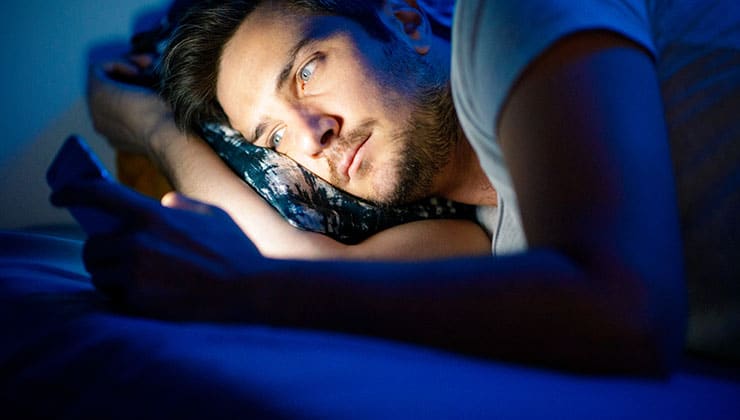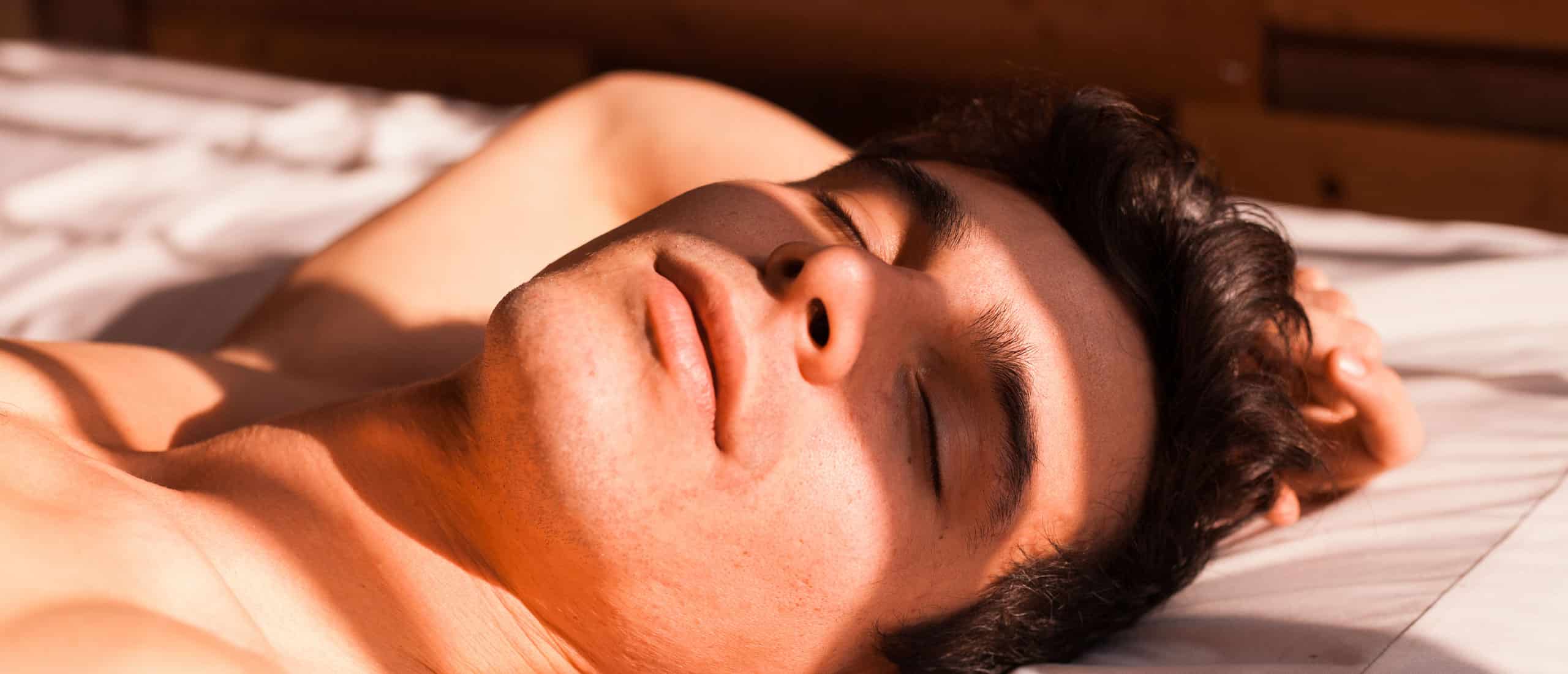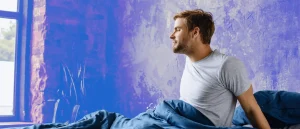Science-Backed Strategies To Fall Asleep Fast
- By Karen Asp, MA, CPT, VLCE
- Fact-checked by Joy Ferguson
- April 8, 2022
Fast Facts
- Certain techniques may help you fall asleep in 10 seconds or within a few minutes.
- Doing—or avoiding—certain activities in the hours leading up to bed can also help you fall asleep fast.
- If these strategies don’t improve your sleep, see your doctor to rule out any medical causes for your sleep struggles.
Nothing is more frustrating than lying in bed, staring at the ceiling, waiting for sleep to overtake you. Whether a racing mind, a 3 pm cup of coffee, or a snoring spouse is keeping you awake, the fallout may be the same: Not being able to fall asleep fast and log enough quality hours of shut-eye—a malady that is reported to affect one in three adults—doesn’t just make you cranky the next day. It is also associated with increasing your risk for conditions like heart disease, obesity, diabetes, high blood pressure, and stroke.
Struggling to fall asleep quickly can be down to poor habits, like not powering down devices before bed, having an inconsistent bedtime, or eating close to bedtime, says Terry Cralle, R.N., certified clinical sleep educator and certified in clinical sleep health.
Among men, physiology might also be to blame. “One of the main reasons men have trouble falling asleep is testosterone-related fluctuations, especially low testosterone,” says Jyoti Matta, M.D., Medical Director of the Center for Sleep Disorders at Jersey City Medical Center in Jersey City, N.J.
While zonking out the second that your head hits the pillow can be a sign that you’re sleep deprived, we’ve rounded up tips from sleep experts to help you fall asleep in as little as 10 seconds, plus other smart ways to boost your quantity and quality of shut-eye.
Fall Asleep in 10 Seconds: The Military Method
Recently, the Pentagon reported that between 27 and 38 percent of military service members suffer from sleep deprivation due to the length of the duty day and the 24-hour-a-day pace of military operations. A relaxation method, dubbed “The Military Method” may be helpful to civilians as well.
Technically this method takes a few minutes, but it’s in the last 10 seconds where the sleep magic is meant to happen. The trick involves methodically relaxing your body, from top to toe. Holding on to that tension, whether physical or mental, can make sleep tough to come by.
“Often, we don’t realize how tense we are before bed, says Cralle. “Consciously relaxing muscles (head to toe) is a great way to start relaxing at bedtime,” she adds.
Try it:
- Sit up or lie in bed with your eyes closed.
- Breathe slowly and relax your facial muscles.
- Loosen your upper body, dropping your shoulders as far down as they’ll go followed by your upper and lower arms, one side at a time.
- Inhale and exhale, relaxing your chest and stomach.
- Then relax your lower body, starting with your thighs, then calves, ankles, and feet.
Once you’re fully relaxed, clear your mind for 10 seconds by imagining that you’re lying in a canoe on a calm lake with nothing but clear blue sky above you or you’re lying in a black velvet hammock in a pitch-black room.
If your mind starts racing, try repeating “don’t think” to yourself over and over for 10 seconds, which may distract you from your thoughts. If that phrase isn’t working for you, come up with your own, even one that has a positive spin versus one that has “do not” in it.
“One of the main reasons men have trouble falling asleep is testosterone-related fluctuations, especially low testosterone.”
Fall Asleep In 60 Seconds: 4-7-8 breathing method
Harvard-trained integrative physician Andrew Weil, M.D., says that this breathing method, which is based on ancient yoga techniques, can calm your body at any time of day and it can be helpful for falling back asleep if you wake in the middle of the night. While there’s no research on its impact on sleep specifically, one study (1) found that diaphragmatic breathing helped lower levels of cortisol, the “stress hormone.”
Try it:
Place your tongue at the roof of your mouth, against the ridge of tissue just behind your upper front teeth, and keep it there throughout the exercise. Prepare by letting all the air out through your mouth. Then do one round of breathing:
- Once you’ve exhaled fully out of your mouth, then close your lips and breathe in through your nose quietly for a count of four.
- Hold your breath for a count of seven.
- Exhale forcefully and fully out of your mouth to a count of eight, making a “whoosh” sound through pursed lips.
Weil recommends doing no more than four rounds of this breath work practice while you get used to the exercise. This may take about a minute. After a month, you may want to increase the rounds to a maximum of eight. And it’s not a one-off tool: according to Weil, practicing the technique regularly is needed for the biggest benefit and you should definitely do it at least twice a day.
Related: Here’s Exactly How Much Deep Sleep You Need
How Do You Stop Stressing About Going to Sleep?
If focusing on the clock is marking you feel stressed, change tactics. “If you are lying in bed after 20 minutes, stressing about falling asleep, get out of bed and do something quiet and relaxing in dim lighting until you feel sleepy – and then return to bed,” says Cralle. “The goal should be getting comfortable and relaxing, not trying to fall asleep. When you are relaxed and comfortable, sleep will follow.”
Work on getting your mind and body ready for bed long before you hit the sheets, says Cralle. Here’s what to do throughout the waking hours to prep your body to fall asleep fast:
Three Hours Before Bed: Log a sweat
There are numerous reasons to exercise, and improved sleep is one of them. “Exercise helps promote quality sleep while helping reduce stress, anxiety, and depression,” says Cralle. All of those conditions can lead to disrupted sleep.
Even just a 10-minute walk every day may help, although recent data (2) from Iowa State University reveals that strength training may help you fall asleep faster and log higher quality sleep than cardio. So if you’re crunched for time, doing squats and bicep curls might help you fall asleep faster than hopping on the treadmill. But make sure you complete your exercise three hours before you hit the bed.
Two Hours Before Bed: Eat your last meal
Your last meal of the day may be one of the worst for sleep, especially if you have late-night business dinners. If you take your last bite too close to bedtime, your food will be digesting as you try to sleep, which may keep you up, says Matta.
It’s not just what’s happening in your body physically (not allowing your body time to digest before heading to bed increases your risk of having heartburn) but also mentally, as you may have had such stimulating conversations during dinner that your brain may take longer to relax. Try to give your stomach at least two hours to digest before you crawl into bed and make sure you avoid deep-fried, high-fat, and high-carb foods, which may cause heartburn and delay sleep as a result.
And skip the cocktails. Alcohol may help you get to sleep, but it comes with a consequence. “As it metabolizes, it will fragment sleep, increasing the number of awakenings and decreasing sleep quality,” says Cralle.
Related: Worried About Low T? Read This Before Your Next Drink
One Hour Before Bed: Switch off screens
One of the most important things you can do in the hour before bed is to avoid screens. Blue light from devices may interrupt your body’s production of sleep-inducing melatonin. Plus, watching violent or intense media or news pre-slumber may leave you too amped to relax.
If you must use devices, turn down the intensity of the light or use blue light glasses and take the TV out of the bedroom, says Matta. Also, put aside work, arguments, and complicated decisions, especially if they’re financial in nature. “These should be saved for daytime when you’re well-rested and thinking clearly,” says Cralle.
Instead, fill your last hour before bed by reading (preferably something that’s non-engaging) doing word puzzles, or, even having sex.

Other Tips for Better Sleep
Set a consistent sleep schedule
“Your biological clock and circadian rhythms are driven by light and hormones, each of which has their own circadian rhythms,” Matta says. “If you’re not keeping consistent sleep and wake times, certain hormones like cortisol will be affected, and your biological clock will be disrupted, making it difficult to fall asleep.” Try to stay close to what might be considered your norm, even on weekends.
Don socks
This sounds like something your grandparents might do, but wearing socks to bed can actually help you fall asleep faster. In one study (3) from the Journal of Physiological Anthropology, young men wearing socks were able to fall asleep 7.5 minutes faster. “Warm socks will help dilate blood vessels, which helps lower core body temperature, which will, in turn, help you fall asleep,” Cralle says.
Sleep solo
“Opt for separate beds, if you and your sleep partner are not enjoying quality sleep in a shared bed,” Cralle says. Just as you don’t exercise or eat like your partner, nor do you sleep like your partner, and if your partner’s preventing you from falling asleep, the best solution may be moving your slumber to another room.
Think of the positives
“Keep a journal at your bedside and note three good things about your day at bedtime,” Cralle says. “This helps with a pre-sleep mindset that is conducive to sleep.”
Listen to a story
Sleep stories for adults are one of the offerings on many meditation apps like Calm. Bedtime stories can help relax you, which may ultimately help you fall asleep faster, says Cralle. Repetition may also help you sleep so consider playing the same story night after night, and your brain may wind up associating that story with falling asleep.
Still can’t fall asleep? If the problem happens at least three times a week with at least 30 minutes of being awake at night and continues for at least 30 days, seek help from a sleep professional. “Too many people ignore sleep problems, but they shouldn’t,” Cralle says. “Sufficient sleep on a daily basis is critical for your physical and psychological health, overall well-being, and quality of life.”
The Bottom Line
Sleep tactics like the Military Method and 4-7-8 breathing can help you fall asleep in 10 seconds or within a few minutes. Other strategies can also help you fall asleep fast. But if you’ve tried mutiple methods and still struggle with sleep, talk to your doctor to rule out any underlying conditions.
References:
- Ma Xiao, Yue Zi-Qi, Gong Zhu-Qing, Zhang Hong, Duan Nai-Yue, Shi Yu-Tong, Wei Gao-Xia, Li You-Fa, The Effect of Diaphragmatic Breathing on Attention, Negative Affect and Stress in Healthy Adults, Frontiers in Psychology, 8, 2017, https://www.frontiersin.org/article/10.3389/fpsyg.2017.00874, DOI=10.3389/fpsyg.2017.00874
- https://www.news.iastate.edu/news/2022/03/03/resistance-exercise-sleep
- Ko Y, Lee JY. Effects of feet warming using bed socks on sleep quality and thermoregulatory responses in a cool environment. J Physiol Anthropol. 2018 Apr 24;37(1):13. doi: 10.1186/s40101-018-0172-z. PMID: 29699592; PMCID: PMC5921564.







